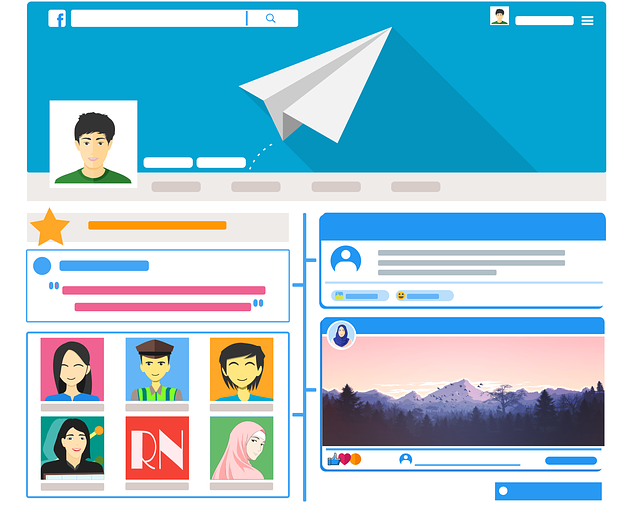Online therapy platforms have transformed access to mindfulness training by breaking down geographical barriers and offering convenient virtual sessions. Driven by tech advancements, these platforms provide structured courses and live facilitations from qualified instructors, promoting stress management, emotional regulation, and mental resilience. Their popularity is underscored by benefits like flexibility, safety, affordability, and higher commitment levels. Ideal for remote work trends, online therapy platforms enhance focus, reduce stress, and foster emotional balance. Popular options like Headspace, Calm, BetterHelp, and Talkspace offer guided meditations, breathing exercises, and real-time communication with licensed therapists. By personalizing content based on individual progress and needs, these platforms are poised to revolutionize mindfulness practices while addressing accessibility and inclusivity challenges for underserved communities. Continuous evaluation through analytics ensures dynamic programs tailored to mental well-being improvements. Integrating virtual mindfulness training into daily routines at home, online therapy platforms support consistent practice, reduce stress, improve focus, enhance overall well-being, and cultivate a calm sense that carries over into offline life.
In today’s digital age, online mindfulness training sessions have emerged as a popular and accessible way to improve mental well-being. The rise of virtual classes has democratized access to mindfulness practices, allowing people worldwide to participate from the comfort of their homes. This article explores the growing trend of online mindfulness, its benefits, popular platforms, and strategies for creating engaging digital experiences. We also delve into challenges like accessibility and inclusivity, measuring success, and integrating these sessions into daily routines, highlighting the role of online therapy platforms in promoting mental health.
The Rise of Online Mindfulness Training: A Growing Trend

In recent years, the rise of online therapy platforms has brought mindfulness training directly into people’s homes, making it more accessible than ever before. This shift towards digital solutions for mental well-being is part of a growing trend, driven by advancements in technology and changing societal needs. The convenience of virtual sessions allows individuals to participate from anywhere, breaking down geographical barriers that traditionally limited access to such programs.
With the increasing demand for online mindfulness training, various platforms have emerged, offering structured courses and live sessions facilitated by qualified instructors. These digital spaces provide a safe and supportive environment for participants to learn and practice mindfulness techniques, fostering better stress management, emotional regulation, and overall mental resilience. The success of this trend is evident in the growing popularity of online therapy platforms, which continue to shape the future of wellness care.
Benefits of Virtual Sessions for Mental Well-being

Virtual mindfulness training sessions through online therapy platforms have gained significant popularity, offering a convenient and accessible way to improve mental well-being. This modern approach allows individuals to practice mindfulness from the comfort of their homes, breaking down geographical barriers that traditionally limit access to therapeutic services. With the rise of remote work and digital connectivity, online platforms provide an ideal setting for cultivating mindfulness, a skill that enhances focus, reduces stress, and promotes overall emotional balance.
The benefits of virtual sessions are vast. They offer flexibility, allowing participants to attend classes at their convenience, accommodating busy schedules. Additionally, online therapy platforms often provide a safe and non-judgmental space, fostering open communication and encouraging consistent practice. These sessions can also be more affordable than traditional in-person therapy, making mindfulness training accessible to a broader audience. Moreover, the convenience of virtual participation encourages higher levels of commitment and consistency, as individuals are less likely to face logistical challenges that might disrupt their progress.
Popular Online Therapy Platforms and Their Features

In today’s digital era, popular online therapy platforms offer a convenient and accessible way to engage in mindfulness training sessions. Apps like Headspace and Calm have gained significant traction, providing users with guided meditations, breathing exercises, and relaxation techniques tailored to their stress levels. These platforms often include features such as customizable schedules, progress tracking, and a diverse library of content, enabling individuals to cultivate mindfulness on their own terms.
Other notable online therapy platforms, like BetterHelp and Talkspace, incorporate live chat, video calls, and unlimited messaging into their services. This allows for real-time communication with licensed therapists who can guide users through mindfulness practices tailored to their unique needs. Such platforms often have robust security measures in place to protect user privacy and data, making them reliable options for those seeking online mental health support and mindfulness training.
Creating an Engaging Digital Mindfulness Experience

In today’s digital era, online therapy platforms have opened up new avenues for accessing mental wellness resources, including mindfulness training sessions. Creating an engaging digital mindfulness experience is a delicate balance between leveraging technology and fostering genuine connection. Successful sessions should incorporate interactive elements like guided meditations, breathing exercises, and even virtual group discussions to keep participants involved. Visual aids, such as calming backgrounds or gentle animations, can enhance the overall atmosphere, making these sessions accessible and enjoyable for users from all walks of life.
Moreover, incorporating personalized features within online mindfulness platforms is key to capturing users’ interest. Tailoring content based on individual progress, preferences, and even mood allows for a more immersive experience. This could include adaptive meditation tracks that adjust in intensity or focus as the user’s needs change, ensuring each session feels unique and impactful. By combining effective design with a human-centric approach, these digital platforms have the potential to revolutionize mindfulness practices, making them more accessible and appealing than ever before.
Techniques to Enhance Focus During Online Classes

Staying focused during online mindfulness training sessions can be challenging, but with some techniques, users on online therapy platforms can enhance their experience. One effective method is to create a dedicated workspace free from distractions. This means ensuring your device is charged, minimizing notifications, and organizing your surroundings to promote concentration.
Additionally, active participation in the session is key. Users should engage with the exercises provided, whether it’s following along with guided meditations or completing mindfulness activities. Taking notes can also help maintain focus and reinforce the learning process. Regular breaks between sessions are beneficial for refreshing the mind and improving overall attention span during online classes.
Overcoming Challenges: Accessibility and Inclusivity Issues

Online mindfulness training sessions have become increasingly popular, especially with the rise of remote work and virtual interactions. However, one challenge that stands out is ensuring accessibility and inclusivity for all users. Many individuals, particularly those from underserved communities or with physical disabilities, may face barriers when utilizing online therapy platforms. For instance, reliable internet connectivity and digital literacy are essential but not universally accessible.
To address these issues, developers of online therapy platforms need to prioritize creating user-friendly interfaces that cater to diverse needs. This includes implementing features like closed captions for videos, text-to-speech functionality, and adjustable settings for users with sensory or cognitive differences. By making mindfulness training more inclusive, these platforms can reach a broader audience, fostering better mental health outcomes for everyone.
Measuring Success and Tracking Progress in Online Mindfulness

Measuring success and tracking progress are essential aspects of any effective online mindfulness training program, especially on popular online therapy platforms. Unlike traditional in-person sessions, digital mindfulness practices require structured methods to evaluate their impact. Many platforms now incorporate advanced analytics to provide insights into user engagement and behavior changes. These metrics can include completion rates of courses, regular practice frequency, and even self-reported improvements in mental well-being through surveys.
By analyzing these data points, both therapists and participants can gauge the effectiveness of specific mindfulness techniques tailored to individual needs. Over time, tracking progress helps identify areas where adjustments are needed, ensuring that online mindfulness training remains dynamic and responsive to users’ evolving challenges. This continuous evaluation fosters a personalized journey towards improved mental health and overall well-being, leveraging the convenience and accessibility of online therapy platforms.
Integrating Virtual Practice into Daily Routines

Integrating virtual mindfulness training sessions into daily routines has become increasingly accessible with the rise of online therapy platforms. These platforms offer a convenient and flexible way to incorporate self-care practices into busy schedules. With just a few clicks, users can access guided meditations, breathing exercises, and other calming techniques from the comfort of their homes. Online therapy tools often provide personalized programs tailored to individual needs, making it easier for people to maintain consistent practice.
Regular virtual mindfulness sessions can help reduce stress, improve focus, and enhance overall well-being. By integrating these practices into daily routines, individuals can cultivate a sense of calm and presence that carries over into their offline lives. Online platforms also offer community aspects, allowing users to connect with others who share similar goals, fostering a supportive environment for personal growth and mental health improvement.
